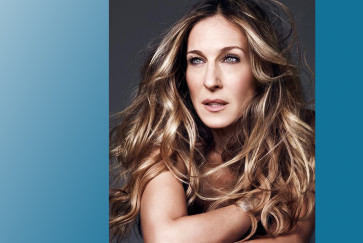The ‘me too.’ Movement was not hanging in the balance when Supreme Court Justice Brett Kavanaugh was confirmed in the wake of sexual assault allegations in 2018, and it will not be defined by the outcome of the ongoing Harvey Weinstein trial, Tarana Burke said Monday at Northwestern Pritzker School of Law.
“I am trying to get people to understand what the ‘me too.’ Movement is and what it is not,” said Burke, founder of the movement to end sexual violence. “The movement that I started is not on television, it’s not in the newspaper, it’s not in the media…The conversation tends to go everywhere but on the survivors.”
Northwestern University commemorated the life and legacy of Martin Luther King Jr. Monday with presentations by Burke in Chicago and Evanston where she inspired capacity audiences.
In many ways Burke’s approach to social justice is similar to Dr. King’s. He believed in the power of a movement and planned and strategized with a group at every step. He struggled with being a spokesperson, partly because of the dangers of being out front and the burdens of responsibility to set the vision and lead.
Burke too prefers the group work of strategizing over being the spokesperson of a movement, and she has already discovered the vulnerability, like Dr. King. After the ‘me too.’ Movement went viral, she was a target of hatred and anger, as well. But, like Dr. King, she said that “injustices keep happening that compel me to be out front and speak out.”
More than a decade before the #MeToo hashtag, Burke created the ‘me too.’ Movement to provide support and healing for survivors of sexual assault and turn them into leaders, because in her words: “Trauma halts possibility. A movement ignites it.”
Her efforts have focused on keeping the voices of marginalized people in the spotlight and creating a culture shift that will end sexual violence.
Like King, Burke spent many years as an organizer in Selma, Alabama working on civil rights issues. While working in Selma with adolescent girls, Burke was struck by the overwhelming number of girls in the community who’d been preyed on by older men and felt unsafe walking home. She realized the best way to help them and foster change in the communities that should be protecting them was to tell her own story.
“Why is it that we can have an active movement against gun violence in this country and recognize what gun violence does to tear communities apart, but we don’t recognize it for sexual violence?” Burke asked. “When sexual violence happens in our communities, people say, ‘be quiet’ and ‘don’t talk about that.’”
Burke’s efforts in fomenting a movement are focused on bringing about cultural change.
“We need real empathy and understanding of what it looks like to survive,” she said. “As long as survivors recognize that you are not the sum total of the things that happened to you, and that there is power in the fact that you are surviving every day, we can do something with that. We can build movement. We can galvanize folks.”
Read more about the movement Burke inspired.
Burke’s keynote concluded Northwestern’s MLK Dream Week which featured events spanning Jan. 15 to 28 including the 41st annual Candlelight Vigil.

